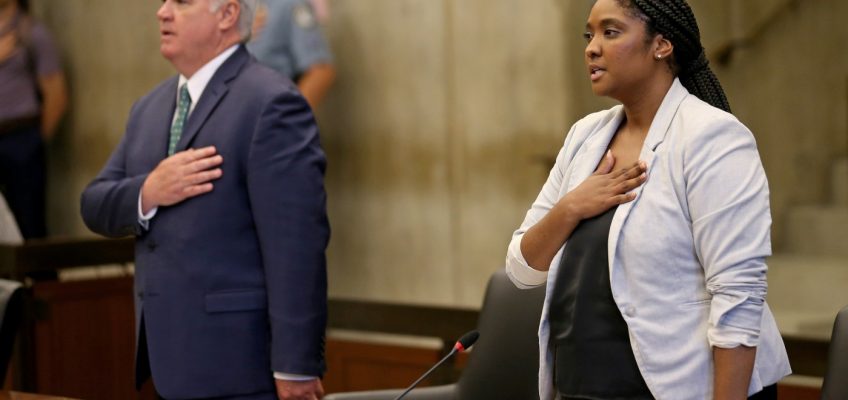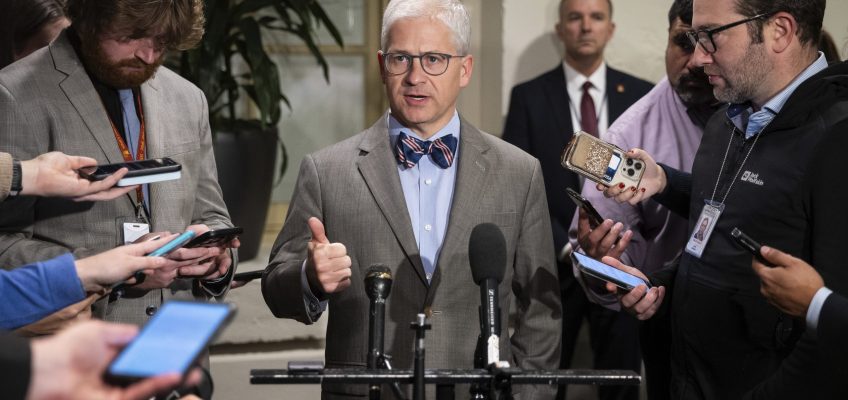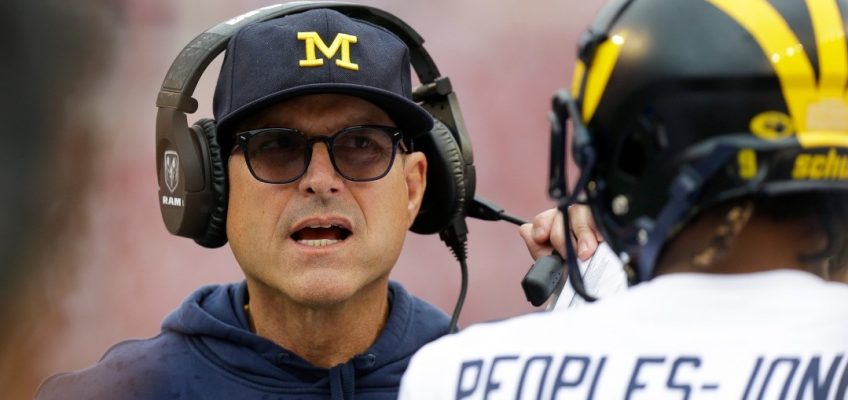House Republicans calling on acting Speaker Patrick McHenry to start legislating — and stave off a governing crisis — may be inviting serious legal challenges, according to several former lawyers for the fractious chamber.
As the GOP conference’s inability to pick a leader threatens to plunge the House into a long-term morass, some Republicans have proposed empowering McHenry to briefly wield the powers of the speakership amid urgent funding battles and international threats.
One version of that plan would entail a full vote of the House to explicitly grant McHenry the authority to lead the chamber. That effort faltered amid resistance from the House’s right flank, but some Republicans have called on McHenry to act anyway, arguing that he already has the authority he needs to run the chamber.
That interpretation, however, carries significant legal risks, says former House counsel Stan Brand, who was the chamber’s top lawyer under former Speaker Tip O’Neill.
“Anytime you’re going to take legislative action that you hope will stand the test, I think you want to be careful about how far you push it,” Brand said. “I thought [McHenry] was very reticent to do that. He should be.”
Acknowledging those risks, McHenry has told Republicans he will resign from the pro tem speaker post if pressed to take on more powers without a formal vote.
The House has broad constitutional authority to establish its own internal procedures. If a majority of members agrees that McHenry should temporarily have the full powers of the speakership, a formal vote would likely hold up in court, three former House lawyers say. Citing the House’s wide latitude to govern itself, federal courts have routinely rejected challenges to the chamber’s internal procedures, which in recent years have included proxy voting, mask mandates and fines for members who evaded metal detectors.
Without that vote, any expansion of McHenry’s powers would invite legal challenges, both internally and externally. It would add layers of uncertainty to any legislation passed without the full imprimatur of the House.
“The safest course would be a House resolution specifying the powers he can exercise,” said Thomas Hungar, who was House counsel under former Speaker Paul Ryan.
“[T]here’s a plausible argument that the Speaker pro tem already has the authority to act as Chair in all respects,” Hungar added, “but if he attempted to proceed in that manner, any Member could challenge his authority and insist on a vote, and then you’d be back to a vote of the House to resolve the issue, so it boils down to the same thing either way.”
And McHenry has ruled out simply taking the reins without a vote to either formally empower him or elect him to his position — warning it would put the House in a politically precarious position and go against the advice of the parliamentarian.
“I’m here to preside over the election of the next speaker,” he said Friday. “I said very clearly to Republicans yesterday that any move to go beyond that I would not support.”
But he added that “if there’s a formalized vote for a speaker pro tem, it can be done, it’s proven to be constitutional. There’s a way through this and a way that the institution can function, but you have to have a formal vote.”
Members themselves are grappling with this largely untested dynamic, noting that there’s little precedent to guide the House. The rules adopted by members in January contemplate a vacancy in the speakership, empowering a temporary speaker to “exercise such authorities of the Office of Speaker” necessary to facilitate the election of a permanent speaker.
McHenry’s ascension to the speakership traces back to a system created after Sept. 11, 2001, to ensure continuity of government. After Kevin McCarthy was ousted earlier this month, the House clerk brought out a still largely secret list of McCarthy’s preferred successors. McHenry was first on the list — who else is on the list is unknown.
While McHenry says the language of the rule limits his authority to simply setting up votes to elect a new speaker, other Republicans have argued it grants him the authority to actually run the House given that it was meant to guarantee continuity of government in the case of a national emergency.
“That measure was done in contemplation of 9/11 to ensure that we have continuity of government,” said Rep. Nick LaLota (R-N.Y.). “There should be nothing to discuss. He’s got all the powers, duties and responsibilities.”
House Republicans have discussed forcing a vote to help protect any actions McHenry takes from legal challenges. GOP lawmakers have mulled different interactions of what that could look like; Rep. David Joyce (R-Ohio) has been discussing a resolution that would empower McHenry through Jan. 3. Republicans have also discussed formally electing McHenry as a temporary speaker with expanded powers.
“These are serious questions,” said Rep. Kelly Armstrong (R-N.D.). “This is second in line to the presidency of the United States. … Everybody seems to have a little different opinion.”
After Jim Jordan lost a secret-ballot vote on Friday in a dramatic fashion, Republicans now face a wide-open field as they head for another candidate forum on Monday evening. That frenzy has put the proposal to empower McHenry on the backburner, for now.
Joyce said that McHenry “doesn’t want the job.” When asked about how to find a consensus in the conference, he pointed to the upcoming candidate forum.
“I think it was pretty clear that we need to empower a speaker and, for whatever reason, this group didn’t feel that was something that they wanted to do. So here we are on Day 20 — Monday will be 20 — and we’ll still be without getting anything done. And have wasted 20 of the 45 days that we have in the CR that they fired Kevin for,” Joyce said.
Quoting “The Princess Bride,” Armstrong added that the notion of a vote to empower McHenry appeared “mostly dead.”
That isn’t to say the idea couldn’t come back if Republicans continue to struggle to find their way out of their self-created wilderness. But it would likely face steep pushback from the conference’s right flank.
The Associated Press snapped a photo on Friday of a resolution from Freedom Caucus Chair Scott Perry (R-Pa.), who opposes the idea of empowering McHenry, to try to boot the North Carolinian from the office if he was elected as pro tem.
“There’s a lot of parliamentary questions around this because it’s never really been done,” said Rep. Andy Ogles (R-Tenn.), another Freedom Caucus member. “We don’t have a duly elected speaker, so can that power actually be transferred?”
One former House counsel agreed that the safest course for GOP lawmakers would be to take an affirmative vote — but he noted the calculus could change as the stagnant House plunges the nation closer to self-inflicted crisis.
“What is the wise course of action probably depends on how desperate the country becomes for House action if the House cannot muster a formal, affirmative vote,” said Kerry Kircher, the top House lawyer from 2011 to 2016.
Caitlin Emma contributed to this report.




